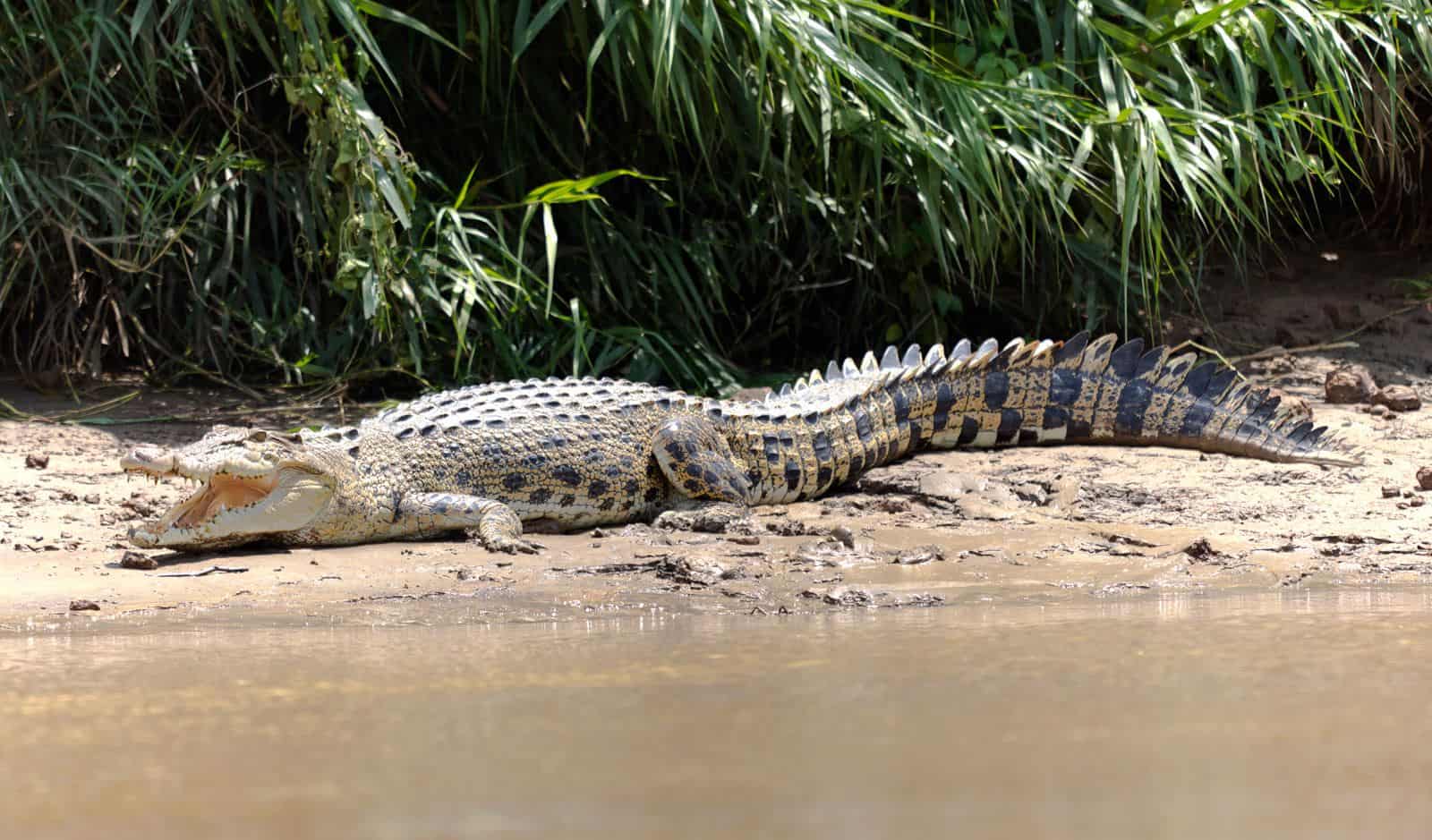A Parent’s Ultimate Guide to the Saltwater Crocodile: Fun Facts and Safety Tips!
Hey there, amazing parents! Are you ready to dive into the fascinating world of the saltwater crocodile with your little adventurers? Saltwater crocodiles, also affectionately known as ‘salties’, are incredible creatures that capture the imagination of kids and adults alike. In this guide, we’ll share some jaw-dropping facts and must-know safety tips to ensure your family’s encounters with these ancient reptiles remain nothing but memorable and, above all, safe. So grab your explorer’s hat, and let’s get going on this wild educational journey!
What You Need to Know About Saltwater Crocodiles
Saltwater crocodiles (Crocodylus porosus) are the largest of all living reptiles and a dominant predator in their environment. You might find these giant reptiles lounging on riverbanks or gliding through mangrove swamps. They’re known for their incredible size, strength, and surprising agility both in and out of the water.
Fun fact: Did you know that saltwater crocodile babies are called hatchlings? They emerge from their eggs after about 90 days and are immediately ready to take on the world – with a little help from mom, of course!
Where to Find Saltwater Crocodiles
These apex predators are primarily found in the Indo-Pacific region, ranging from the eastern coast of India, throughout Southeast Asia, and down to northern Australia. They inhabit a variety of water bodies, including rivers, estuaries, and coastal shallows.
Understanding Saltwater Crocodile Behavior
Learning about saltwater crocodile behavior is essential for staying safe around these reptiles. Crocodiles bask in the sun to regulate their body temperature and are most active at night. They’re territorial and can become aggressive if they feel threatened.
Kids are naturally curious, so it’s important to teach them the dos and don’ts around saltwater crocodiles. Remind your little ones never to approach a crocodile, feed it, or splash in waters where crocodiles are known to live.
How to Enjoy Saltwater Crocodiles Safely
Viewing these majestic creatures can be a thrilling experience, but it’s crucial to do so safely. Opt for guided tours from reputable operators who understand crocodile behavior and adhere to safety regulations.
When out on your own, always abide by warning signs and keep a safe distance from the water’s edge in crocodile habitats. Elevated platforms and secure viewing areas are great spots for safely observing saltwater crocodiles in the wild.
A Deep Dive into Saltwater Crocodile Conservation
Conservation efforts for saltwater crocodiles are of utmost importance. While their populations have recovered from the brink of extinction due to hunting, habitat destruction and human-crocodile conflict continue to pose threats.
Fostering respect and understanding for these ancient reptiles through education is key to their survival. When we teach our children to appreciate wildlife, we’re investing in the future of our planet.
Ready to explore more about these intriguing giants of the reptile world? Keep reading for intriguing details on the saltwater crocodile’s habitat, diet, and the crucial role they play in their ecosystem!

5 Essential Safety Tips for Parents Preparing to Encounter Saltwater Crocodiles
Educate Your Family
One of the best things you can do is educate your family about saltwater crocodiles. Teach them about where crocodiles live, their behavior, and why it’s important to respect wildlife. Knowledge is power, and understanding these magnificent creatures can lead to a safer and more enriching experience.
Always Supervise Children
When exploring areas known for saltwater crocodile habitats, it’s critical to keep a close eye on children at all times. Avoid letting them play near the water’s edge, as crocodiles can be stealthy and quick when they decide to strike.
Follow Local Guidelines and Signage
Parks and wildlife services often have clear guidelines and signs warning visitors of potential dangers. These are not suggestions; they’re rules to ensure your safety. Teach your kids to look for and obey these signs, emphasizing their importance for protection.
Be Crocwise: Avoid Risky Behaviors
Discourage risky behaviors like swimming, kayaking, or fishing in waters where crocodiles might live, unless in a supervised area deemed safe by authorities. Instilling these habits can prevent unwanted encounters with crocodiles.
Choose Safe Viewing Options
For a safe and controlled environment, consider visiting a crocodile park or sanctuary. These facilities usually have safety measures in place and offer a closer look at the animals without the associated risks of wild encounters. Plus, it’s an educational outing for the entire family!
The Engaging World of Saltwater Crocodiles: Diet, Habitat, and Importance in Ecosystems
Understanding more about the day-to-day life of saltwater crocodiles can also prepare you for safe encounters. These creatures are apex predators, feasting on a variety of prey such as fish, birds, mammals, and sometimes even sharks! This rich diet helps saltwater crocodiles grow to impressive sizes, with males typically reaching up to 6 meters (20 feet) in length.
Saltwater crocodiles are not picky about their homes as long as there’s access to both water and land. You’ll find them lounging in rivers, freshwater swamps, mangroves, and sometimes venturing out to sea. This adaptability has allowed them to thrive in diverse environments.
In their ecosystems, saltwater crocodiles play a critical role. As top predators, they help maintain the balance by controlling the populations of other species. However, their value extends beyond biological contributions; saltwater crocodiles are also a part of cultural significance in many regions, revered in some communities, and featured in local folklore and mythology.
In conclusion, having respect for saltwater crocodiles’ power and position in nature is the first step toward a safe and enjoyable experience. As parents, the knowledge and behaviors you instill in your kids regarding these ancient animals can promote a harmonious coexistence and ensure that future generations may continue to marvel at the saltwater crocodile safely from a respectful distance. Enjoy your explorations and remember, safety always comes first!
For more great fun click here. For more information see here
Disclaimer
The articles available via our website provide general information only and we strongly urge readers to exercise caution and conduct their own thorough research and fact-checking. The information presented should not be taken as absolute truth, and, to the maximum extent permitted by law, we will not be held liable for any inaccuracies or errors in the content. It is essential for individuals to independently verify and validate the information before making any decisions or taking any actions based on the articles.




